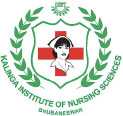Research
The Research and Development cell aims to promote the research activities in the institution and motivate the Nursing fraternity & students to conduct innovative research in the newly emerging field, thrust areas including multidisciplinary fields. Research helps nurses to enhance the capability, effective best practices, and improve patient care. Nurses are better advocates for patients and provide high quality patient care through evidence-based practice. To achieve Future growth in Nursing and maintain their relevance research is an essential part.
Nursing research develops the knowledge & skill on maintenance of health and well-being, promotion of health, care of persons with health problems and disabilities.
Research Thrust area
Medical Surgical Nursing
- Non-communicable diseases
- Geriatric Nursing
- Psycho-oncology.
- Alternative and complementary Therapies.
- Unintentional injuries
- Chronic illnesses
- Quality of life
- Preventative care
- Capacity Building of Nurses
- Patient safety
- Student Centric Teaching Learning
- Pain management & improving comfort
Child health Nursing
- Neonatal care
- Non-communicable disease in children
- Health awareness and preventive aspects
- Low birth weight and preterm babies
- High risk newborn
- Communicable disease
- Quality improvement in new born care
- Prevention of traumatic dental injury
- Prevention of childhood obesity
- Health screening behavior of parents
- New born resuscitation
- Child nutrition
- Infection control practices
- Supportive care to parents
- Parenting style
- Developmental disorders
- Behavioral problem
- Child psychiatry
- Adolescent problems
- Oncology disorders
- Palliative care
- Congenital disorders
OBG Nursing
- Domiciliary care
- Toxemias in pregnancy
- Antenatal care
- Adolescent pregnancy
- Prevention of Intranatal & postnatal complications
- STD & Infertility
- Oncology Nursing
- High Risk pregnancy
- Respectful Maternity care
- Quality improvement of maternal & newborn care
- Evidence based practice on labour
- Gestational diabetes
- Utilization of different MCH Programme by stakeholders
- Menopausal health
Community Health Nursing
- Geriatric Health
- Non- communicable diseases
- Community health
- Maternal & child health
- Communicable diseases
- Disability & Rehabilitation
- effectiveness & utilization of Government health programmes
- Caring for Vulnerable Population
- Health & wellness
- Disaster Nursing
- Occupational Health
- School health
Mental Health Nursing
- Community psychiatric nursing.
- School mental health programme.
- Neuro psychiatric nursing,
- Guidance and Counseling,
- Geriatric mental health
- Occupational mental health
- Women’s mental health
- Behavioral Mental health
- Adolescents & Adulthood mental health
- Psychiatric emergencies
- Childhood psychiatric disorders
- Substance abuse
- Counselling & psychotherapy
- Forensic psychiatry
- Psychiatric disorders
Areas of Interdisciplinary & collaborative research
- Complex care management
- Pain in Child Health
- Children with complex care needs
- Capacity building
- Better mental health care
- Healthy aging
- Occupational and environmental health
- Complementary treatments
- Self-care
- Preventive care
- Empowering Patients
- Palliative care
- Patient safety and quality
- Primary & comprehensive care
- Cultural competency education
- Philosophical problems in the health sciences
- Ethical problems in pediatric critical care
Research Ethics is an act of moral principles that the nurse researcher has to follow while conducting nursing research to ensure the rights and welfare of individuals, groups or community under study. Research ethics is fundamental to nursing research practice, nurse education and the development of evidence. In conducting research, it is important to plan for and anticipate any potential or actual risks.
The ethical principles that nurses must adhere to the principles of justice, beneficence, nonmaleficence, accountability, fidelity, autonomy and veracity.
While conducting the research, nurses have to follow certain ethical values like human dignity, autonomy in decision making, privacy, justice,precision and accuracy in caring, commitment, sympathy, human relationship, honesty and individual and professional competency.
The generation of research evidence is crucial to the provision of safe and effective health and social care.If research is conducted in a safe and ethical manner, the process and outcome of knowledge generation can be benefit to everyone involved.
Research Publication Statistics
The academic publishing world is changing significantly, with ever growing number of publications each year and shifting publishing patterns.
Moreover by analysing, we observed that from last five years the number of publication increased substantially. Project and thesis conducted on the thrust areas of research which may have local, regional or national impact.

Research Collaboration
Name of the collaboration : The Risk Management and Prevention of Antibiotics Resistance – PREVENT IT – consortium (consisting of 11 national and international partners including KIIT Deemed to be University)
Collaborating agency name : ERASMUS+



